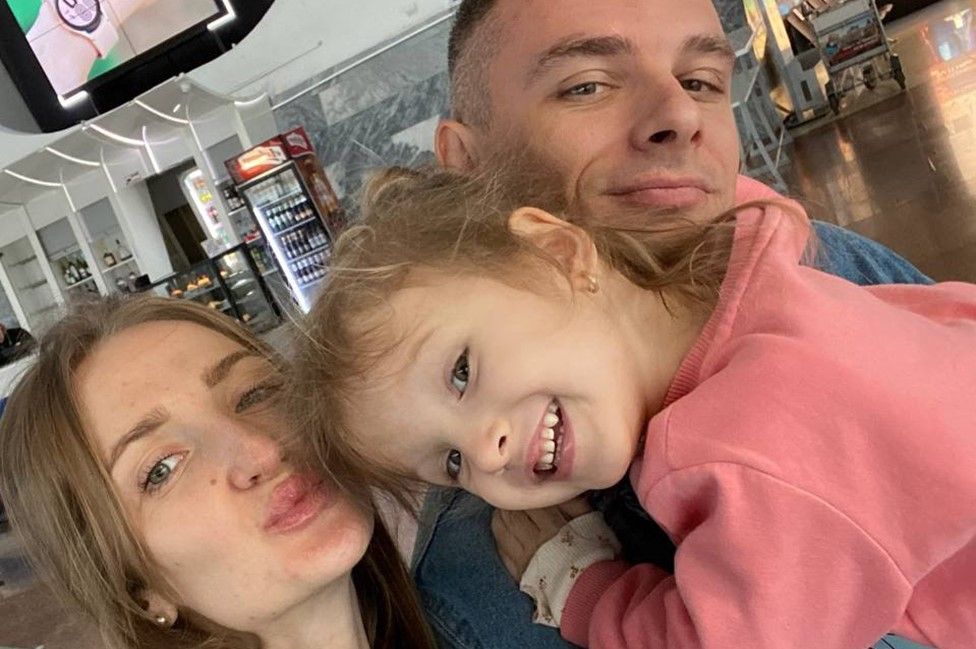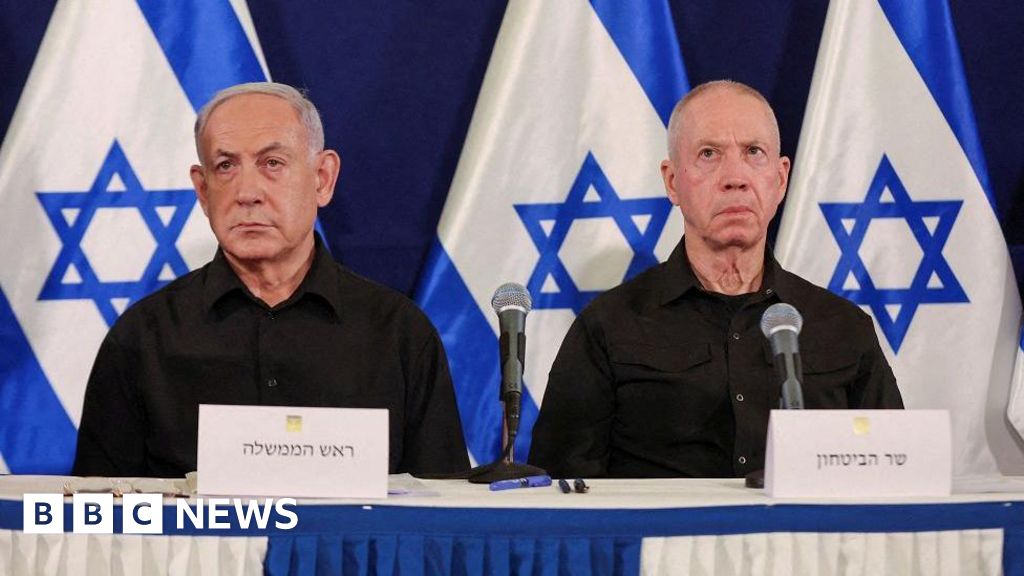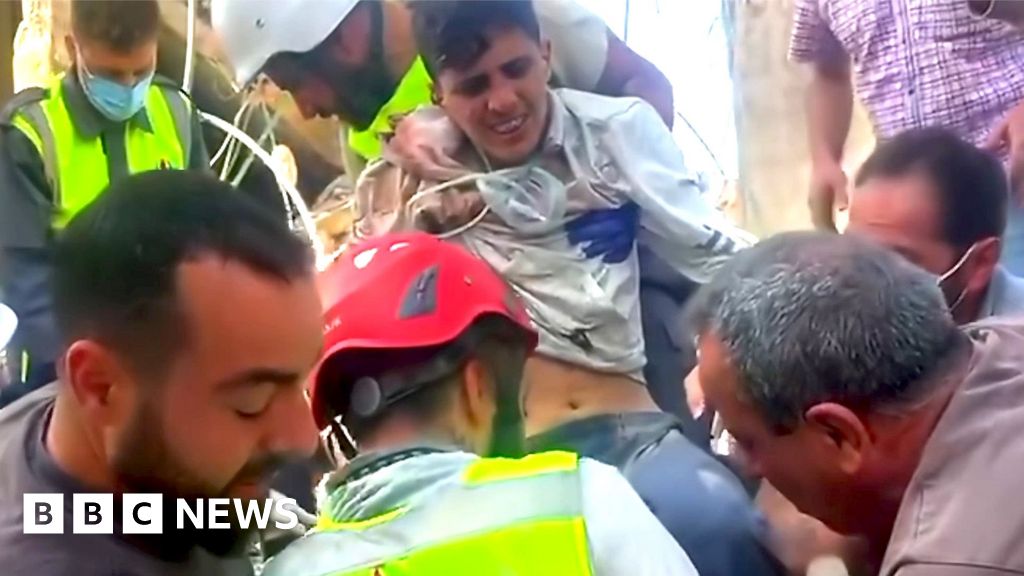ARTICLE AD BOX
 Image source, Anatol Liabedzka
Image source, Anatol Liabedzka
Artyom Liabedzka and his family, who remain in Belarus
By Maria Jevstafjeva & Andrey Kozenko
BBC Russian, Vilnius
Two exiled Belarusian activists have told the BBC they believe their sons have been arrested in retaliation for their anti-government actions.
Belarusian human rights group, Viasna, says it is part of a pattern of harassment of family members and friends of dissident figures who face tactics including arrests, interrogations, and dismissal from work.
The organisation says the government finds new targets for repression by checking the social circles of known activists.
The crackdown on those who disagree with Belarusian leader Alexander Lukashenko intensified in the summer of 2020, after a widely disputed presidential election, and continues to this day.
Among those targeted is the family of Anatol Liabedzka, a veteran Belarusian politician who now serves as an adviser to Svetlana Tikhanovskaya - the exiled opposition leader widely believed to have won the election in 2020.
He now lives in Lithuania, but his 37-year-old son, Artyom, remains in Belarus. Artyom was detained on 28 March for allegedly swearing at police officers in Minsk - an allegation his father called "absurd".
He spent 30 days in the notorious Okrestina detention centre, where protesters said they were beaten and tortured for denouncing the 2020 election as rigged.
Authorities later opened a criminal case against him. He now faces up to five years in prison for "financing extremism".
"My son is a textbook example of a hostage," Anatol Liabedzka told BBC Russian.
Anatol has been detained himself many times over the years, but he says that this is the first time that not only activists, but also their relatives are being targeted.
"It was always a war, but there used to be some rules," he says. "Now we have got to the point where, before shooting their opponents, they put our children in front of us."
Image source, BBC / Vladimir Komissarov
Image caption,Anatol Liabedzka says his son is a hostage of the Belarusian authorities
Alexander Lukashenko has ruled Belarus since 1994. In 2020 he claimed another presidential election victory, but the results have not been recognised by the West.
The largest demonstrations the country had ever seen broke out soon after, and the authorities responded with repression and violence.
Since then, Viasna says the families and friends of activists have been subjected to much harsher intimidation techniques than ever before, including raids on their homes.
"These raids are like a shock in the morning, when sometimes more than a dozen people with weapons break into your house. They put you on the floor or point weapons at you and turn the apartment upside down," Pavel Sapelka, a lawyer for Viasna, says.
"Any criticism of the Belarusian government is considered to be extremist."
At the time of writing, Viasna says 1,497 people are behind bars for politically motivated charges.
The United Nations also believes that the Belarusian authorities use extremism and counter-terrorism laws to suppress dissent.
The Belarus leader has a close relationship with Russia's Vladimir Putin, and has repeatedly said that his country, which borders both Russia and Ukraine, stands for peace between the two warring countries.
But despite this he allowed Russia to use Belarus as a platform to send troops into Ukraine in 2022.
"There are several pillars of Lukashenko's regime: the main ones are Putin and fear," says Anatol Liabedzka.
Indeed, he is the world leader who Vladimir Putin meets with most often. Last year alone they met in person 10 times. He refers to the Russian president as his "big brother".
Like in Russia, many people who oppose the government have fled Belarus, mostly to Poland and Lithuania. The only opposition leaders remaining are the ones who have been imprisoned.
One of them, ex-presidential hopeful Viktar Babaryka, was sentenced in 2021 to 14 years in prison on corruption charges, which his supporters say were trumped-up. He was arrested a month after he declared his intention to run for the presidency.
Image source, Alexandra Zvereva
Image caption,Alexandra Zvereva (R) left Belarus soon after Eduard (L) was detained, fearing she would be next
His 33-year-old son Eduard, who ran his father's campaign, was arrested on the same day for suspected tax evasion.
Eduard's ex-girlfriend Alexandra Zvereva told BBC Russian that Eduard did not think he was going to be arrested because "he did not violate any laws", but after his arrest she knew that she was in danger too.
"The moment they arrested Eduard, I understood that it was not safe to remain in Belarus. I realised that I would most likely be next," says Ms Zvereva.
She too accuses the Belarusian authorities of intimidating the families of activists, simply because of who they are.
"For a parent, it is an even more painful punishment when your own child takes responsibility for your actions - actions which, it should be said, are in no way wrong."
Eduard Babaryka spent almost three years in a detention centre without a court date - longer than any other political prisoner. The authorities found new charges to justify his continued detention, including organising mass riots, and he has just found out he will appear in court later this month.
His supporters point out that the "riots" he is accused of organising took place while he was in detention.
There is no public information about when Eduard Babaryka's case will go to court, but it is unlikely he will be released before a date is set. His supporters are awaiting a date in June when his legal detention period should end, but they know the authorities could find more reasons to keep him locked up.
"Nothing can protect Belarusians from arbitrariness," says Pavel Sapelka.
Belarusian authorities have not commented on the detention of Eduard Babaryka and Artem Liabedzka, or replied to the BBC's request for comment.
Additional reporting by Tatsiana Yanutsevich.
WATCH: Highlights of the Belarus leader's exclusive interview with the BBC’s Steve Rosenberg

 1 year ago
12
1 year ago
12








 English (US)
English (US)